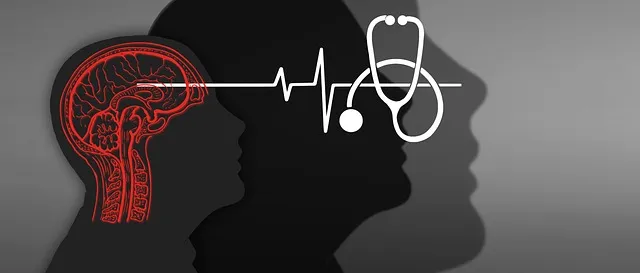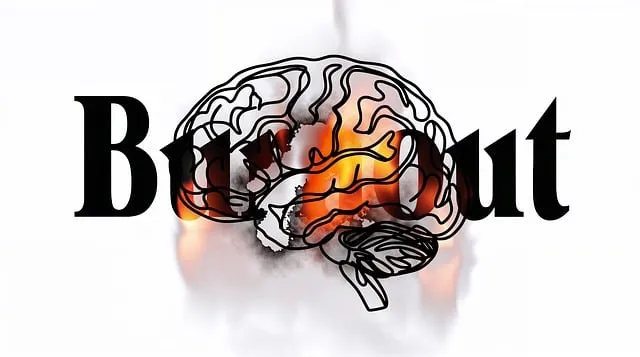The Kaiser Permanente Mental Health Access Center in Denver advocates for mental wellness journaling as a powerful, complementary therapy. Through reflective writing, individuals can track mood, identify triggers, and gain insights into their resilience. This practice fosters self-compassion, develops coping skills, and promotes positive mental health policy. The center offers tailored journaling exercises, guiding participants to explore thoughts, emotions, and behaviors for enhanced well-being, preventing depression, and supporting trauma healing.
“Unwind and embrace a transformative practice with our comprehensive guide to mental wellness journaling. This powerful self-care tool, backed by research from the Kaiser Permanente Mental Health Access Center in Denver, offers a personal journey towards improved mental clarity and emotional well-being.
Learn how structured journaling can unlock your mind’s potential, providing a safe space for reflection and growth. From understanding its benefits to practical tips for effective practices, this article equips you with the tools to enhance your mental health.”
- Understanding Mental Wellness Journaling: A Personal Journey
- The Kaiser Permanente Mental Health Access Center Denver Approach
- Practical Tips for Effective Journaling: Unlocking Your Mind's Potential
Understanding Mental Wellness Journaling: A Personal Journey

Mental wellness journaling is a powerful tool for self-reflection and personal growth, offering an opportunity to explore and understand one’s mental health journey. It involves documenting thoughts, emotions, and experiences in a structured yet intimate manner, much like confiding in a trusted friend. This practice has gained prominence as a complementary approach to traditional therapy, especially with the support of resources like the Kaiser Permanente Mental Health Access Center in Denver. Here, professionals encourage individuals to engage in this reflective process as part of their mental health management.
Through journaling, one can track patterns in their mood and behaviors, identify triggers for specific emotions, and gain insights into personal resilience. It allows for the development of coping skills, such as those promoted by Compassion Cultivation Practices, enabling individuals to navigate life’s challenges with increased awareness and emotional intelligence. The act of putting pen to paper (or fingers to keyboard) can be therapeutic in itself, fostering a sense of self-compassion and promoting positive mental health policy analysis and advocacy from within.
The Kaiser Permanente Mental Health Access Center Denver Approach

The Kaiser Permanente Mental Health Access Center Denver offers a unique and comprehensive approach to mental wellness, emphasizing self-discovery and growth through journaling exercises. This innovative center has recognized the power of self-expression as a tool for improving mental health and overall well-being. Their method involves guiding individuals through a series of reflective writing practices tailored to their personal experiences.
By participating in this program, users can engage in various Mental Wellness Coaching Programs Development activities designed to prevent depression and promote Mental Health Awareness. The center’s approach encourages individuals to explore their thoughts, emotions, and behaviors, fostering a deeper understanding of themselves. Through regular journaling, users can develop coping strategies, enhance self-awareness, and cultivate resilience, ultimately leading to improved mental wellness and a more fulfilling life.
Practical Tips for Effective Journaling: Unlocking Your Mind's Potential

Journaling is a powerful tool to unlock your mind’s potential and improve mental wellness. At the Kaiser Permanente Mental Health Access Center in Denver, we encourage our clients to embrace this practice as part of their self-care routine. Here are some practical tips for effective journaling:
Start by setting aside dedicated time each day or week. Consistency is key; even brief writing sessions can make a difference. Create a safe and comfortable space where you won’t be disturbed, allowing your thoughts to flow freely. Encourage yourself to write without judgment, exploring both positive and negative emotions honestly. Incorporate prompts like “What am I grateful for today?” or “Describe a challenging situation and how it made you feel.” These questions can help guide your reflection and promote self-awareness. Remember, journaling is a personal process; adapt these tips to suit your style and needs. For instance, some people prefer bullet points or lists, while others enjoy creative writing. Utilizing these techniques might even support depression prevention efforts and contribute to effective risk management planning for mental health professionals, as it fosters client resilience and coping mechanisms. Additionally, Trauma Support Services can benefit from journaling as a means of processing and healing.
Mental wellness journaling is a powerful tool accessible to everyone, as evidenced by the successful implementation at the Kaiser Permanente Mental Health Access Center in Denver. By integrating practical tips and personal reflection, individuals can unlock their mind’s potential, fostering resilience and enhancing overall mental health. Embrace this simple yet effective practice to navigate life’s challenges with greater clarity and purpose.






